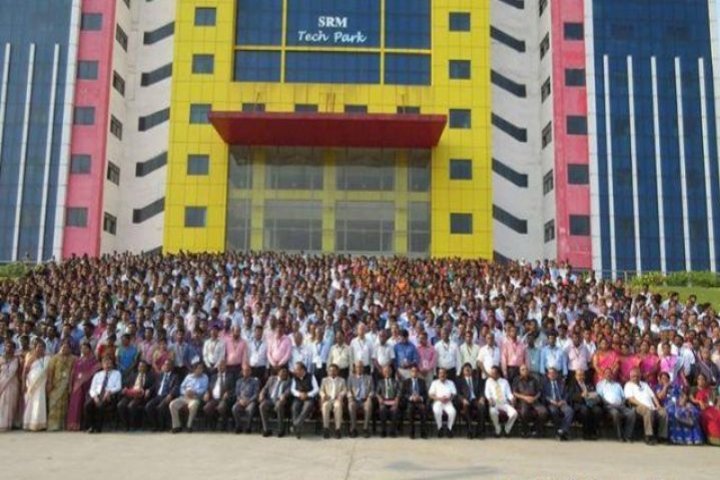
Genetic Engineering Course Details - Fees, Subjects, Syllabus, Duration, Eligibility, Career Scope
Degrees offered: B.E /B.Tech, M.E /M.Tech., M.Sc., Ph.D, P.G.D
What is Genetic Engineering
Genetic Engineering is a part of modern genetics that is used at a global level for numerous purposes. It is a combination of technologies and scientific concepts in which scientists can change the genomic data like DNA of a naturally occurring cell to make it commercially useful. Genetic engineering is used to treat genetic disorders like cystic fibrosis.
Genetic engineering is provided at various levels of education like B.E/B.Tech, M.Tech. MSc, PhD and PGD. There are many colleges and universities in India that offer these degrees in Genetic Engineering. The curriculum of genetic engineering includes subjects such as DNA Structure & Gene Expression, Biophysics, Biochemistry, Molecular Biology and Engineering of Genes and Genomes.
Post- completion of genetic engineering, candidates get the opportunity to pursue job profiles like Genetic Engineer, Research Scientist, Biotechnologist, Clinical Geneticist, Bioinformatician, Molecular Biologist, Biomedical Engineer and Quality Control Analyst. The top recruiters in India for these profiles are Biocon, Serum Institute of India, Bharat Biotech, ICMR, Reliance Life Sciences and NII.
Highlights- Genetic Engineering
Particulars | Values |
Branch Name | Biotechnology |
Degree | |
Eligibility | UG: 10+2 in Science PG: Bachelor in Biotechnology or relevant discipline |
Admission Process | Entrance Exams |
Entrance Exam | JEE Main, JEE Advanced, GATE, LPU NEST, CUET PG |
Course Fees | Rs. 4.8 Lakhs |
Job Profiles | Genetic Engineer, Research Scientist, Biotechnologist, Clinical Geneticist, Bioinformatician, Molecular Biologist, Biomedical Engineer and Quality Control Analyst |
Average Salary | Rs. 5.5 LPA |
Recruiting Companies | Biocon, Serum Institute of India, Bharat Biotech, Indian Council of Medical Research (ICMR), Reliance Life Sciences, National Institute of Immunology (NII) and Dr. Reddy's Laboratories |
Specialisation or Similar Ones
There are a lot of similar options to that of Genetic engineering. Some of the similar degrees include Medical Genetics, Agricultural Genetics, Industrial Biotechnology, Genomics, Cell Biology, Biomedical Engineering and Bioinformatics. Some specialisations that are related or similar to Genetic Engineering are mentioned in the table below.
M.Tech Research Molecular Reproduction, Development and Genetics | Ph.D Molecular Biology and Genetic Engineering |
M.Sc Genome Engineering | PGD Gene Manipulation Technology |
B.Tech Biotechnology in Genetic Engineering | M.Sc Agriculture Genetic and Plant Breeding |
Top Genetic Engineering Colleges in India
Courses in Genetic Engineering are provided by numerous public and private universities and colleges. The fee for Genetic Engineering is typically dependent on the degree programme selected by the student, as well as the type and location of the institution. Some of the top colleges in India offering Genetic Engineering are listed in the table below.
Colleges | Fees |
Rs. 7.44 Lakhs | |
Rs. 10 Lakhs | |
Rs. 8.28 Lakhs | |
Rs. 6 Lakhs | |
Rs. 1.04 Lakhs | |
Rs. 28,400 | |
- | |
- | |
Rs. 1.04 Lakhs | |
- | |
Note: The fee structure provided above can be for any particular Genetic Engineering course (Certificate/Diploma/ Degree/PGD).
Eligibility Criteria (UG & PG) of Genetic Engineering
Genetic Engineering programmes. Every programme has different eligibility criteria depending upon the course chosen by the candidate and specific institution norms. Below are the following criteria for undergraduate and postgraduate programmes in Genetic Engineering:
Eligibility Criteria for UG Courses
The eligibility criteria for undergraduate courses are a set of guidelines that the candidate has to meet to guarantee their admission to the desired institute. Candidates can check the eligibility criteria of the desired institute on the official website of the course. Mentioned below is the eligibility criteria of undergraduate courses in the Genetic Engineering field.
- Students need to have at least 50 per cent marks during their 10+2 from a recognised national or state level education board.
- The core subjects in 10+2 class should be Physics, Chemistry, Biology/Mathematics.
Top Entrance Exams for UG Courses
There are some institutions and colleges offering Genetic Engineering degree courses that require candidates to sit for the entrance exams. Candidates need to successfully qualify for the examination to sit for the counselling sessions. Below are the details of some of the entrance exams required by the candidates.
Exam Name | Level | Conducting Body | Exam Schedule |
National | NTA | ||
National | IIT Bombay | ||
University | LPU |
Eligibility Criteria for PG Courses
Candidates who are interested in pursuing postgraduate courses in Genetic Engineering must fulfil the eligibility criteria. They should ensure they meet these criteria before applying for admission. The eligibility criteria for postgraduate level Genetic Engineering are mentioned below:
Aspirants must have a bachelor's degree in Genetic Engineering with at least 50-60 per cent marks from a reputed institute.
Top Entrance Exams for PG Courses
The universities and colleges offering PG courses in Genetic Engineering also require candidates to qualify for a certain entrance examination. These entrance exams like CUET PG, GATE are computer-based exams. Below are the details of some of the entrance exams required by the candidates:
Exam Name | Level | Conducting Body | Exam Schedule |
National | IIT Kanpur | ||
National | NTA |
College Predictors VIEW ALL
Scope of Genetic Engineering in India and Abroad
Genetic engineering is one of the most widely pursued courses in India, with numerous career aspects in both private and government sector at various entry levels. An undergraduate or postgraduate student can easily find work as a research assistant or as lab manager. PhD scholars can join the university as lecturers while continuing their postdoctoral training alongside.
India being a hub of generic medicines, there are tons of job opportunities in medical and pharmaceutical industries, genetic engineering firms, and chemical industries with salaries varying anywhere between Rs. 8 LPA to Rs. 12 LPA. If anyone chooses to work in research labs of various reputed universities, one day, they can even be administering a whole research project fully funded by the state.
Course Fees Genetic Engineering
| Minimum Fees | Maximum Fees | |||
|---|---|---|---|---|
| Private | Government | Private | Government | |
| UG | ||||
| PG | ||||
| DOCTORAL | ||||
Course Subjects
Genetic Engineering Syllabus for UG Courses
The syllabus for Genetic Engineering at undergraduate level depends on the institute. Some of the subjects offered are Fundamentals of Computing and Programming, Internet Programming, and Principles of genetics. Mentioned in the table below is Bharat Institute of Higher Education’s B.Tech Genetic Engineering syllabus.
Semester - 1 | |
English – I | Engineering Mathematics-I |
Engineering Physics – I | Engineering Chemistry - I |
Cell Biology | Fundamentals of Computing and Programming |
Personality Development | Basic Civil engineering |
Basic Mechanical Engineering | Basic civil and mechanical Engineering practice lab Computer Practice Lab |
Physics And Chemistry lab | - |
Semester - 2 | |
English – II | Engineering Mathematics - II |
Engineering Physics - II | Engineering Chemistry - II |
Internet Programming | Foreign/Indian language |
Principles of genetics | Basic Electrical and Electronics Engineering |
Internet Practices lab | Computer Practices lab |
Basic Electrical and Electronics Engineering Practices Lab | Physics and Chemistry Lab II |
Semester - 3 | |
Enzyme Technology | Principles of Genetic Engineering |
Immunology | Microbiology |
Principles of Biochemistry | Biostatistics |
Microbiology Laboratory | Biochemistry Laboratory |
Technical seminar | - |
Semester - 4 | |
rDNA Technology | Molecular Biology |
Environmental studies | Genomics and Proteomics |
Bio-organic chemistry | Basics of Bioinformatics |
Molecular Biology Lab | Cell Biology Lab |
Technical seminar-II | - |
Semester - 5 | |
Principles of Management and Ethics | Research Methodology |
Cytogenetics | Metabolic engineering |
Biophysics | Plant tissue Culture |
Elective-I | Immunology Laboratory |
Plant Genetic Engineering Laboratory | Mini Project-II |
Semester - 6 | |
Agri, Veterinary and Medical informatics | Bio-Pharmaceutical technology |
Genes and Diseases | Gene Therapy |
Cancer Biology | Elective-II |
Gene Cloning Laboratory | Bioinformatics Laboratory |
Semester - 7 | |
Biosafety, Bioethics, IPR & Patent | Animal Cell Culture and TransgenicTechnology |
Nanotechnology in Healthcare | Stem Cell Biology |
Elective-III | Elective- IV |
Genome Analysis Laboratory | Animal Cell Culture Laboratory |
Project Phase-I | Implant Training |
Semester - 8 | |
Elective –V | Elective – VI |
Elective – VII | Project work |
Genetic Engineering Syllabus for PG Courses
Genetic Engineering syllabus for postgraduate courses consists of subjects such as Molecular Genetics, Immunobiology, and Regulation of Gene Expression. Mentioned in the table below is the syllabus of SRM Institute of Science and Technology for their M.Tech Genetic Engineering syllabus.
Semester- 1 | |
Molecular Genetics | Biological Chemistry |
Immunobiology | Advanced Biostatistical Methods |
Career Advancements Course for Engineers- I | Programme Elective- I |
Semester- 2 | |
Recombinant DNA Technology | Regulation of Gene Expression |
Sequence Analysis & Structure Prediction | Career Advancement Course For Engineers -II |
Programme Elective 2 | Programme Elective 3 |
Interdisciplinary Elective | - |
Semester- 3 | |
Programme Elective- 4 | Programme Elective- 5 |
Programme Elective- 6 | - |
Semester- 4 | |
Project Phase- II | - |
Careers in Genetic Engineering
India has become a global hub for the production of generic medicines at a lower price. Due to an increase in demand for medicines, biotech firms in India are increasing day by day.
The Genetic Engineering sector has a huge scope of expansion and job opportunities. The jobs are available for graduates in both the private and public sectors, some of them are mentioned in the following table.
Career Profiles | Job Description |
Genetic Engineer | Genetic Engineer is responsible for using their field knowledge and innovating new health systems or products essential from the commercial and scientific perspective. He or She plays a major role in managing artificial organs to instrumentation involved in the field. |
Research Scientist performs experiments to understand genetic functions and processes. He or She also analyses data to discover new genetic engineering techniques. | |
Biotechnologist uses genetic engineering principles to develop products like medicines or biofuels. He or She also works on improving crop yields and disease resistance. | |
A Geneticist is responsible for diagnosing and treating genetic disorders in patients.He or She also uses genetic engineering for developing new treatments. | |
A Bioinformatics Scientist is responsible for analysing genetic data using various computer software. He or She also develops tools to manage and interpret genetic information. | |
A Quality Controller is responsible for testing genetically engineered products to ensure they meet safety standards.He or She also monitors production processes to maintain quality in genetic engineering projects. |
Upcoming trends
In recent times, there has been a great emphasis on technology and different fields of Genetic engineering. There have been advancements in software tools for precise DNA editing which helps to treat genetic diseases effectively. The research field of genetic engineering is also affected positively with the use of artificial intelligence and computer analysis.
Job Profiles and Top Recruiters
The graduates after pursuing Genetic Engineering can work at Research Labs, Education Institutions, Agriculture and Food Industry, Forensic Labs and Government Agencies, and Pharmaceuticals and Healthcare. Mentioned below are the top recruiters in the field of Genetic Engineering.
Top Recruiters:
- Biocon
- Serum Institute of India
- Bharat Biotech
- Indian Council of Medical Research (ICMR)
- Reliance Life Sciences
- National Institute of Immunology (NII)
- Dr. Reddy's Laboratories
Average Salary
The average salary of a Genetic Engineering graduate can vary based on the individual's skills and abilities, as well as the job role and location. The table below provides an estimate of the average salaries for some common career paths in the field of Genetic Engineering.
Career Profiles | Average Salary |
Genetic Engineer | Rs. 4.5 LPA |
Research Scientist | Rs. 9.2 LPA |
Biotechnologist | Rs. 2.6 LPA |
Clinical Geneticist | Rs. 4.8 LPA |
Bioinformatician | Rs. 7.5 LPA |
Quality Control Analyst | Rs. 4.3 LPA |
Source: Ambition Box and Glassdoor
The salary figures mentioned anywhere in these articles are just for reference purposes. Please treat them as such. Actual salaries may vary depending on respective candidates, employer, job location, and numerous other factors.
Required Skillset for Genetic Engineering
Genetic Engineering is not merely a theoretical field in which students can easily learn and excel in their performance. The field is highly practical, thus, it has a very high demand for professionals who are not only good in the academic part but also can handle the practical aspect of the field.
- Hard Work
- Lab Handling
- Computer Skills
- Research Skills
- Patience
- Quantitative Skills
Course Curriculum for Genetic Engineering
The course of Genetic Engineering introduces the study of genes at a broader level. Students are taught about living organisms from plants to human beings at a genetic level. From advanced lab equipment to modern gene-editing techniques, the curriculum covers all the aspects to make aspirants ready for the field of Genetic Engineering.
The course not only takes the concepts from science but other subjects also have a major part in this field such as mathematics, and chemistry. The curriculum also equips students with theoretical as well as practical knowledge via lab experiments, including all the essential technology of today's time.
Popular Genetic Engineering Entrance Exams in India
Frequently Asked Questions (FAQs)
Question: Is the Genetic Engineering course offered by IITs?
Answer :
Students can take up the Genetic Engineering course in IITs but only at the post graduation level. They need to have a graduation degree in either Biotechnology or in Life science.
Question: What are some of the major fields interlinked with the Genetic Engineering sector for placements?
Answer :
After the completion of their education, students can get placements into various industries and sectors, including prosthetics, military, pharmaceuticals, gene therapy, agriculture, organ transplant, vaccine production, and research.
Question: Is Genetic Engineering a good career option? What is the starting salary in this field?
Answer :
Genetic Engineering is a very reputed field with surplus job opportunities not limited to the mainstream medical field. Due to the advancements made in this field, the scope and employment opportunities are on the rise. The starting salary in this domain is Rs. 4 to 5 LPA.
Question: What is the average amount of time taken to complete educational qualification for becoming a Genetic Engineer?
Answer :
After completion of 12th, students often give national level examinations for the admission process for various institutes in Genetic Engineering or related subjects which are of 4 years duration. Then depending on the students, they can pursue a postgraduate degree to increase their chances for better job opportunities in this field, these courses are of 2 years duration.
Question: Which countries are considered best for placements in the field of Genetic Engineering?
Answer :
Some of the countries which are the most advanced in the field of genetic Engineering include Switzerland, Scotland, the USA, and England.
Question: What is the scope of Genetic Engineering?
Answer :
Genetic engineering is an upcoming field in India. Candidates specialising in this domain can find employment opportunities in both the private and public sectors. Genetic engineers are particularly sought after in the environmental sector, where they contribute to bio-treatment and bioremediation of diverse waste types.
Question: What are the top entrance exams in the field of Genetic Engineering?
Answer :
The top entrance exams for Genetic Engineering are JEE Main, JEE Advanced, and GATE exam.
Question: How can one become a Genetic Engineer?
Answer :
To become a Genetic Engineer, it’s necessary for candidates to study Biochemical Engineering at a recognised institute in India. According to the eligibility criteria, students must have completed their 10+2 examinations with science subjects, choosing either the PCM or PCB combination.
Question: What are the subjects taught in Genetic Engineering?
Answer :
The course curriculum of Genetic Engineering depends on the institute and level of education. Some of the subjects offered in Genetic Engineering are Cytogenetics, Plant tissue Culture, Bio-Pharmaceutical technology, and Nanobiotechnology in Healthcare.
Question: What is the duration of the Genetic Engineering course?
Answer :
The duration of the Genetic Engineering course depends on the level of education. Generally, the course duration of genetic engineering is four-years, and that of the postgraduate course is two-years.
Questions related to Genetic Engineering
I have taken PCMB for 11 and 12 and I also want to give JEE . However in future I want to approach genetic engineering . Could you please help me with the way I should approach my career ?
Hi
hope you doing well
It's an exciting choice to Pursue a career in genetic engineering, especially with your background in PCMB.
Firstly focus on your Jee prepration: Since you plan to give JEE, focus on mastering Physics, Chemistry, and Mathematics. Your Biology knowledge will also be beneficial, especially in understanding genetic concepts.
After JEE, consider pursuing a degree in Biotechnology, Biochemistry, or a related field at a reputable institute. Some institutions offer specialized programs in Genetic Engineering.
Look for NITs and IIITs: Consider applying to National Institutes of Technology (NITs) or Indian Institutes of Information Technology (IIITs) that have strong Biotechnology programs.
Develop skills such as critical thinking, problem-solving, and communication, as they are essential in research and collaboration.
And here you go for approach for genetic engineering.
Best Wishes.
is there any tamil nadu colleges offering seat for bsc genetics or genetic engineering
Hello Swetha
There are many genetic engineering colleges in Tamil Nadu, few of them are listed below
ANJAC Sivakasi , Tamil Nadu
Sri Ramchandra Institute of higher education and research, Chennai, Tamil Nadu
NICHE kanyak umari , Tamil Nadu
Sri Ramchandra medical college, Chennai, Tamil Nadu ,
Madras university, Tamil Nadu
BU Tamil Nadu
ACAS
Fees - ranges from 10,000 to one lakh
Genetic engineering candates can work as
Researcher
Medical Industry
Biotechnology field
Agricultural field
Salary- ph D holders in genetics earn upto 12 lpa
Hi is there is course B TECH genetic engineering in lovely university. and if yes than how i can get admission
Hello student,
Lovely professional University is a is a good private institute where there are total 54 BTech courses situated at Phagwara Punjab. This institute already has secured 51st rank in the engineering category in NIRF Ranking. But sorry to say you there is no b.tech of genetic engineering in lovely professional University rather you can apply for b.tech in biomedical engineering from here. You have to appear for LPU nest and clear it with a good scope to be eligible for this course. The total course fee is approx 10 lacs. Click on the link below to know more.
Hope this will help you
Can I pursue a Masters in Genetic Engineering after a B.Tech in Bio Engineering?
Yes you can apply for masters degree in genetic engineering after completing of Technology in bio engineering. The eligibility criteria of masters of genetics engineering is to complete bachelor degree in either biochemistry or biotechnology or biomedical sciences or genetics etc with at least 55% marks in the aggregate. The candidate must have completed his bachelors degree from a recognized university. Mentioned below are the name of the popular entrance examinations for masters in genetics engineering:
- IIT JAM
- Niper jee
- PGIEMR
- DAV CET
Read more:
how to admitted to pcb student in genetic engineering college
Hello Aspirant ,
Eligibility Criteria for admission in B.Tech in Genetic engineering
-
Students must have cleared 10+2 or an equivalent qualification from any board with an aggregate of more than 50% of the marks in exams.
-
Students must have taken Physics, Chemistry, Biology, and Maths as the major subjects in class 12th.
-
Students must have appeared for the entrance test according to the requirement of the respective institute.
Top colleges for B.Tech in Genetic engineering
Below are the top colleges for the admission in B.Tech Genetic engineering:
-
Sharda University, Greater Noida
Job opportunities / Career prospects for B.Tech in Genetic engineering
Graduates with a B.Tech in genetic engineering can find employment in a variety of fields, including academic institutions, R&D facilities, agricultural research facilities, genetic research facilities, stem cell research facilities, food and pharmaceutical businesses.
The job profiles for the graduate in B.Tech in Genetic engineering are-
Junior Research Fellow
-
Medical Writer
-
Production Control Analyst
-
Field Service engineer
-
Research Scientist
-
Technical Writer
-
- Find more about the course on Career360 website, I have provided the link below -
- https://www.careers360.com/courses/b-tech-in-genetic-engineering/amp
- Hope this helps, thank you.











 Answer later
Answer later













